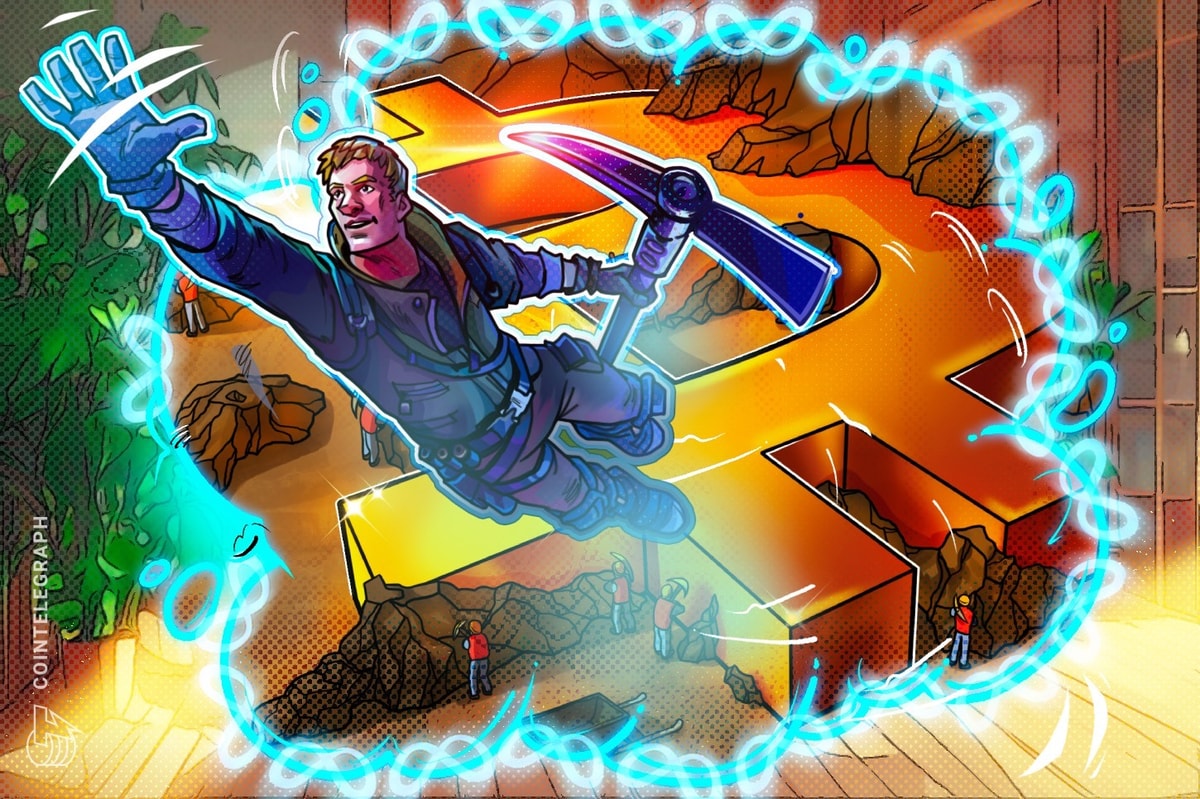Five of China's biggest mining pools — AntPool, F2Pool, BTCChina, BW Mining, and Huobi — have mutually agreed to a raise of the block size limit to 8 MB. In a statement sent to Cointelegraph and posted today on the Bitcoin subreddit, they collectively rejected Bitcoin core developer Gavin Andresen's proposal to raise the limit from 1 MB to 20 MB, and instead presented a compromise.
The mining pools came to the agreement at the National Conference Center in Beijing last Thursday. As they jointly account for some 55% to 60% of all hashing power on the Bitcoin network, it may now be increasingly unlikely that a consensus among the global Bitcoin community can be found on a block size increase to 20 MB.
The statement released by the Chinese mining pools reads:
“After undergoing deep consideration and discussion, the five pools agree that while the block size does need to be increased, a compromise should be made to increase the network max block size to 8 megabytes. […] We believe that this is a realistic short term adjustment that remains fair to all miners and node operators worldwide.”
In an article last week, we covered Chinese exchange's stances against the increase. Likewise, Chinese mining pool operators are concerned that a 20 MB block size limit could hurt their success rate. They argue this might lead to Chinese miners seizing their operations altogether, which could in turn cause a drop in hashing power and a corresponding reduction in the security of the Bitcoin network.
The mining pools provided three arguments against the proposed raise to a 20 MB block size limit:
- First, Chinese Internet bandwidth infrastructure is not built out to the same level as that of other countries.
- Second, Chinese outbound Internet bandwidth is restricted, which causes increased latency in connections to Europe and the United States.
- And finally, the pool operators claim that not all Chinese mining pools are ready for the jump to 20 MB blocks. Because of this, they fear that an increase to the large size could lead to a high rate of orphan blocks.
The mining pool operators consider a raise to 8 MB to be a temporary solution for scaling Bitcoin to levels appropriate to mainstream use. Speaking to Cointelegraph, Evan Mo, CEO of Huobi's mining project Digcoin, clarified that they consider further adjustments to the protocol — such as the Bitcoin core developer Jeff Garzik's BIP-100 draft — to be feasible. Mo explained:
“Raising the block size limit to 8 MB is the first step of an improvement plan for the Bitcoin network. There is no clear and definite block size to completely solve the transaction jam. 8 MB is therefore a good start for the improvement of the Bitcoin network, and at the same time a relatively mild solution. But it is undeniable that increasing the block size limit to 16M or 32M might be needed in the future.”

He also emphasized that the Chinese mining pools will not pursue an increase in the block size limit on their own. He says they would rather propose their alternative to the current Bitcoin core development team in order to come to a broader consensus. He told CT:
“The pool operators could actually make such a change themselves without proposing that the core developers do such a thing. Instead, we would like to express our views and concerns to the core developers, and let the community form a discussion rather than rudely cast a divergence. We are happy to see the consensus on the final improvement plan. After all, a 'forked' community is not what we are chasing after.”
The possibility of raising the block size limit to 8 MB has previously been suggested within the core development team and the broader Bitcoin community. According to Mo, contact with the Bitcoin Core development team have been positive:
“We have really good communication with Gavin Andresen on this issue. The core developers are also adjusting Garzik's proposal on protocol upgrade.”
Cointelegraph also reached out to BTCChina, Antpool, F2Pool and BW Pool, but received no further responses at press time. This article will be updated if other Chinese mining pool operators provide additional comments.
Update June 17, 10:03 UTC: F2Pool admin Wang Chung provided Cointelegraph with an additional comment:
"We do not necessarily consider an 8 MB block size limit a temporary solution, as we cannot predict what will happen years into the future. But we do think 8 MB is enough for the foreseeable future, presumable at least for the next three years. An increase to 20 MB however, is too risky, and we do not like the proposed Bitcoin-Xt alternative either. We do, on the other hand, support BIP 100 as proposed by Jeff Garzik."
Update June 17, 15:36 UTC: BTCChina CEO Bobby Lee provided Cointelegraph with additional comments as well:
"Through operating a large mining pool in China, we just feel that in the current fixed-level block size approach, an increase to 8 MB is the most appropriate for now. If the limit were smaller, then it won't give us enough headroom to include the ever-increasing number of transactions. And unfortunately, a larger limit is also disfavored because we feel the current global network is not yet ready to handle transfers of really large blocks, especially given the connectivity situation of mining pool operators in China."
And:
"I have recently spoken with Gavin about this 8 MB proposal. We both feel good about it, and have agreed to move forward with this proposal for an 8 MB block size limit. The next step is for the Core development team to make the necessary changes, and then, I am sure all miners and mining pool operators around the world would go forward and adopt this new code.












